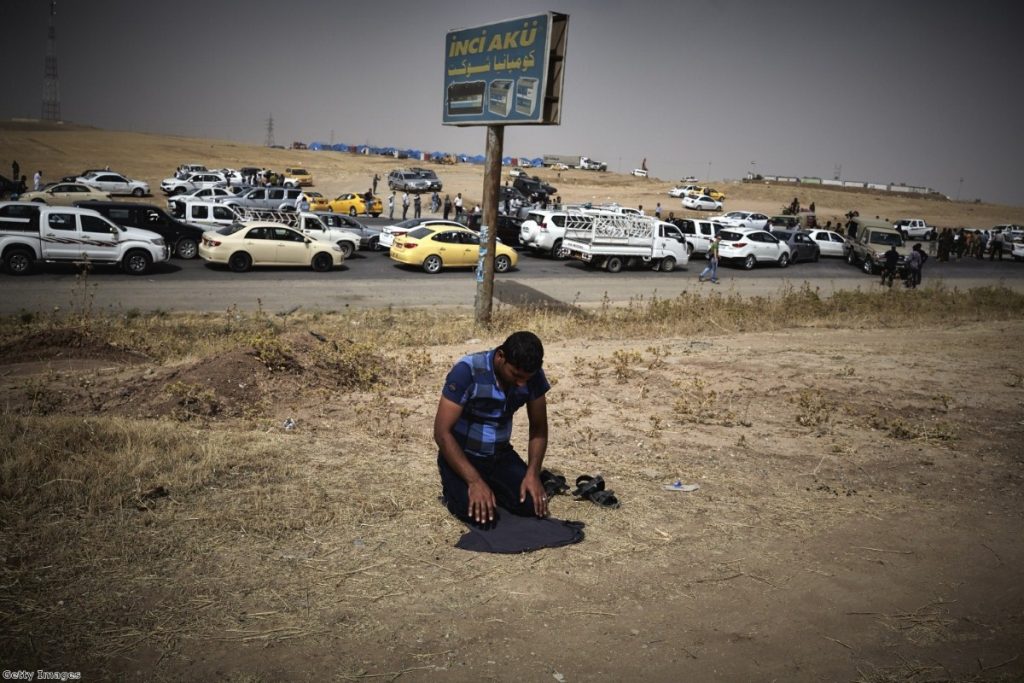What’s in a name? Why the BBC is right to keep using ‘Islamic State’
David Cameron does a sort of meta-commentary whenever he's on the BBC. If he's interviewed by Andrew Marr, he spends most of his time complaining that he is not allowed to speak – seemingly unaware of the fact he needs to speak in order to express it. When he was on Radio 4 earlier this week, he told off the corporation for using an inappropriate word for Islamic State, or Isis, or Isil, or Daesh – whatever you want to call it. One hundred and twenty MPs backed him in a letter to the BBC.
It looks like the BBC is standing its ground. A response from Lord Hall says:
"The BBC takes a common sense view when deciding how to describe organisations, we take our cue from the organisation's description of itself. We have recognised that used on its own the name Islamic State could suggest that such a state exists and such an interpretation is misleading. So we have caveated the name 'Islamic State' with words which qualify it eg 'so called Islamic State'."
In fact Lord Hall is overly generous. Islamic State, which this website refers to as Isis, actually is starting to mint gold and silver coins for use in its "caliphate". It is implementing a system of law – one based on medievalist barbarity, but a system of law nonetheless. It is more than a political movement now. Should it be recognised by the UN? Of course not. It should be destroyed by almost any means necessary. But whether we like it or not, it is more than just a political organisation with a militia wing.


And whether one likes things or not is at the heart of this question, because we cannot fight the things we dislike unless we accept that they exist in the form in which they exist. You wouldn't attack a building without schematics. You can't defeat something unless you know it as it really is.
The prime minister is – unusually – adopting a favoured tactic of the radical left here. He only ever adopts the left's really bad ideas. This time it's that you can change the world merely by changing the language with which people discuss it. That's why 'racism' has been changed to mean 'structural racism', it’s why the word 'progressive' was claimed for use exclusively by the left, and why identity politics has spent the last twenty years in a baffling linguistic ghetto of policed terms rather than addressing genuine injustice.
Now, the Tory party appears keen to go the same way and is applying considerable political weight to forcing the BBC to change its style guide. As I write this, Chris Grayling has been having a go at them in the Commons. This is no small matter. The Times, Daily Mail and Telegraph are all running very damaging stories today, saying the Beeb is worried about "being unfair" to Isis. Their crusade against the public broadcaster has no basic standard of decency, and using its attempt at intellectual consistency as a way of painting it as a weak-willed terrorist sympathiser is apparently well within the rules of the game.
Actually, Lord Hall is entirely correct: The BBC's system is to use the name a group gives itself. Daesh, the prime minister's preferred term, is not an acronym of the group's full Arabic name, ad-Dawlah al-Islamiyah fi 'l-'Iraq wa-sh-Sham, but a pejorative name given to it by its enemies. He has to stick to this system, anything else leads us to a place where the BBC can no longer claim impartiality.
None of us like Isis. But to start suggesting the national broadcaster uses value-laden terms based on petitions of MPs is a path to ruin. The reason the BBC has such trust – at home but more importantly abroad – is because it is seen as independent of government. Taking on its petitions for word usage would be a disaster. But so would imbuing the terminology it uses with the expected popular reaction to the people and groups it reports on. It is not meant to curate public opinion. It is meant to give us the facts so we can form our own view. This regularly proves frustrating for politicans and the extent to which it does so is a good indicator of the BBC's success.
To condemn Isis one need merely document what it does. It is not necessary to jump onto specially-constructed terms. To his credit, Cameron is concerned with not giving the impression they represent Islam – either to Muslims or non-Muslims. But that is a matter for argument, not tinkering with terminology. It is a very easy argument to win and we do not need a petition on semantics from MPs to do so.

